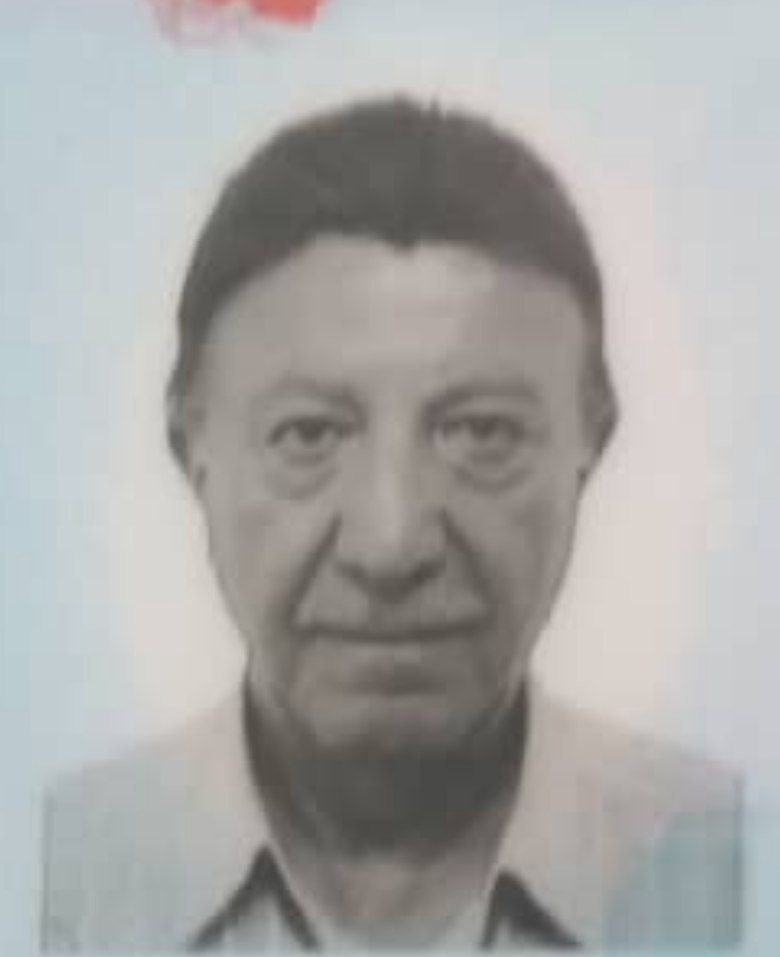اثربخشی درمان تلفیقی طرحواره و شفقت خود بر علائم بالینی زنان مبتلا به اختلال شخصیت مرزی
کلمات کلیدی:
اختلال شخصیت مرزی, درمان تلفیق طرحواره و شفقت خود , زنان, علائم بالینیچکیده
هدف: پژوهش حاضر باهدف بررسی اثربخشی درمان تلفیقی طرحواره و شفقت خود بر علائم بالینی زنان مبتلابه اختلال شخصیت مرزی انجام شد.
روششناسی: این پژوهش نیمه آزمایشی با طرح پیشآزمون-پسآزمون گروه کنترل و پیگیری 2 ماهه بود. جامعه آماری شامل کلیه زنان با اختلال شخصیت مرزی ساکن شهر تهران با حداقل 8 طرحواره ناسازگار در سال 1400 بودند و از میان آنها 34 نفر بهصورت نمونهگیری هدفمند انتخاب و به روش تصادفی در دو گروه آزمایش و کنترل جایداده شدند. پروتکل درمان تلفیقی طرحواره و شفقت خود برای گروه آزمایشی طی 15 جلسه، هفتهای یک جلسه 90 دقیقهای اجرا شد. جهت جمعآوری دادهها از پرسشنامه اختلال شخصیت مرزی (BPI) لیشنرینگ (1999) استفاده شد. دادهها با روش تحلیل واریانس آمیخته تجزیهوتحلیل شد.
یافتهها نشان داد با کنترل اثر پیشآزمون تفاوت معناداری بین پسآزمون گروه آزمایش و کنترل در علائم بالینی آشفتگی هویت (727/12=F)، مکانیزم دفاعی اولیه (325/13=F)، ترس از صمیمیت (56/10=F) زنان با اختلال شخصیت مرزی وجود داشت (01/0>P).
نتیجهگیری: با توجه به مؤثر بودن شیوه درمانی در بهبود علائم بالینی زنان با اختلال شخصیت مرزی، از این بسته درمانی میتوان بهعنوان مداخله روانشناختی مؤثر در مراکز سلامت جهت برای کاهش علائم بالینی زنان با اختلال شخصیت مرزی استفاده کرد.
دانلودها
مراجع
Ahmed, S., Newman, D., & Yalch, M. (2021). The Stigma of Borderline Personality Disorder. Advances in Psychology Research, 145, 59-78. https://www.researchgate.net/publication/354282461_The_Stigma_of_Borderline_Personality_Disorder
Arntz, A., & Genderen, H. V. (2021). Schema Therapy for Borderline Personality Disorder. https://doi.org/10.1002/9781119101161
Bidari, F., & Haji Alizadeh, K. (2019). Effectiveness of schema therapy on cognitive strategies of emotion, distress bearing and alexithymia in the patients suffering from borderline personality disorder. Journal of Psychological Studies, 15(2), 165-180. https://psychstudies.alzahra.ac.ir/article_4306.html
Bohus, M., Stoffers-Winterling, J., Sharp, C., Krause-Utz, A., Schmahl, C., & Lieb, K. (2021). Borderline personality disorder. The lancet, 398(10310), 1528-1540. https://doi.org/10.1016/S0140-6736(21)00476-1
Boog, M., Goudriaan, A. E., Wetering, B. J. V., Franken, I. H., & Arntz, A. (2023). Schema therapy for patients with borderline personality disorder and comorbid alcohol dependence: A multiple-baseline case series design study. Clinical Psychology & Psychotherapy, 30(2), 373-386. https://doi.org/10.1002/cpp.2803
Bourvis, N., Cohen, D., & Benarous, X. (2023). Therapeutic and preventive interventions in adolescents with borderline personality disorder: recent findings, current challenges, and future directions. Journal of clinical medicine, 12(20), 6668. https://doi.org/10.3390/jcm12206668
Brenning, K. M., De Clercq, B., Wille, B., & Vergauwe, J. (2020). Towards a fine-grained analysis of the link between borderline personality pathology and job burnout: Investigating the association with work-family conflict. Personality and individual differences, 162, 110030. https://doi.org/10.1016/j.paid.2020.110030
Brud, P. P., & Cieciuch, J. (2023). Borderline personality disorder and its facets in the context of personality metatraits and pathological traits. Personality and individual differences, 202, 111958. https://doi.org/10.1016/j.paid.2022.111958
Carreiras, D., Cunha, M., & Castilho, P. (2022). Which self-compassion components mediate the relationship between adverse experiences in childhood and borderline features in adolescents? Self-compassion in adolescents. European Journal of Developmental Psychology, 19(6), 847-868. https://doi.org/10.1080/17405629.2021.1981283
Dhaliwal, K., Danzig, A., & Fineberg, S. K. (2020). Improving Research Practice for Studying Borderline Personality Disorder and Chronic Stress. Chronic Stress, 4, 1-10. https://doi.org/10.1177/2470547020912504
Dickhaut, V., & Arntz, A. (2014). Combined group and individual schema therapy for borderline personality disorder: a pilot study. Journal of Behavioral Therapy and Experimental Psychiatry, 45(2), 242-251. https://doi.org/10.1016/j.jbtep.2013.11.004
Donald, F., Lawrence, K. A., Broadbear, J. H., & Rao, S. (2019). An exploration of self-compassion and self-criticism in the context of personal recovery from borderline personality disorder. Australasian Psychiatry, 27(1), 56-59. https://doi.org/10.1177/1039856218797418
Dong, H., Wang, M., Zheng, H., Zhang, J., & Dong, G. H. (2021). The functional connectivity between the prefrontal cortex and supplementary motor area moderates the relationship between internet gaming disorder and loneliness. Progress in Neuro-Psychopharmacology and Biological Psychiatry, 108, 110154. https://doi.org/10.1016/j.pnpbp.2020.110154
Dreybe, K., Beller, J., Armbrust, M., & Kroger, C. (2020). A hierarchical analysis of the latent trait of borderline personality disorder and its possible clinical implications. Psychiatry research, 17, 113-123. https://doi.org/10.1016/j.psychres.2020.113023
Fagan, S., Hodge, S., & Morris, C. (2022). Experiences of compassion in adults with a diagnosis of borderline personality disorder: An interpretative phenomenological analysis. Psychological Reports, 125(3), 1326-1347. https://doi.org/10.1177/00332941211000661
Ghasem Abadi, E., Khalatbari, J., Ghorban Shiroudi, S., & Rahmani, M. A. (2021). Effects of Combined Schema Therapy, Compassion-Focused Therapy, and Dialectical Behavior Therapy on Married Women's Life Expectancy. MEJDS, 11, 132-132. https://jdisabilstud.org/browse.php?a_id=1878&slc_lang=en&sid=1&printcase=1&hbnr=1&hmb=1
Gholami, F., Baghouli, H., Barzegar, M., & Koroshnia, M. (2020). Providing a Causal Model for Explaining the Development of Borderline Personality Disorder. Psychological Models and Methods, 11(41), 113-140. https://jpmm.marvdasht.iau.ir/article_4532.html
Gilbert, P., & Procter, S. (2006). Compassionate Mind Training for People with High Shame and Self-Criticism: Overview and Pilot Study of a Group Therapy Approach. Clinical Psychology & Psychotherapy, 13(6), 353-379. https://doi.org/10.1002/cpp.507
Hakimnia, M., & Rafezi, Z. (2021). How confusing an assessment might be? A case study in borderline personality disorder. Journal of Psychological Science, 20(98), 259-268. https://psychologicalscience.ir/browse.php?a_id=1002&sid=1&slc_lang=en
Hastrup, L. H., Jennum, P., Ibsen, R., Kjellberg, J., & Simonsen, E. (2022). Welfare Consequences of Early-Onset Borderline Personality Disorder: A Nationwide Register-Based Case-Control Study. European Child & Adolescent Psychiatry, 31, 253-260. https://doi.org/10.1007/s00787-020-01683-5
Heriot-Maitland, C., Vidal, J. B., Ball, S., & Irons, C. (2014). A compassionate-focused therapy group approach for acute inpatients: feasibility, initial pilot outcome data, and recommendations. British Journal of Clinical Psychology, 53(1), 78-94. https://doi.org/10.1111/bjc.12040
Hilden, H. M., Rosenström, T., Karila, I., Elokorpi, A., Torpo, M., Arajärvi, R., & Isometsä, E. (2021). Effectiveness of brief schema group therapy for borderline personality disorder symptoms: a randomized pilot study. Nordic journal of psychiatry, 75(3), 176-185. https://doi.org/10.1080/08039488.2020.1826050
Jacob, G. A., Hauer, A., Köhne, S., Assmann, N., Schaich, A., Schweiger, U., & Fassbinder, E. (2018). A schema therapy-based eHealth program for patients with borderline personality disorder (priovi): naturalistic single-arm observational study. Jmir Mental Health, 5(4), e10983. https://doi.org/10.2196/10983
Keng, S. L., & Wong, Y. Y. (2017). Association among self-compassion, childhood invalidation, and borderline personality disorder symptomatology in a Singaporean sample. Borderline personality disorder and emotion dysregulation, 4(1), 1-8. https://doi.org/10.1186/s40479-017-0075-3
Khasho, D. A., van Alphen, S. P., Ouwens, M. A., Arntz, A., Heijnen-Kohl, S. M., & Videler, A. C. (2023). The effectiveness of individual schema therapy in older adults with borderline personality disorder: A multiple-baseline case series design. Clinical Psychology & Psychotherapy. https://doi.org/10.1002/cpp.2900
Leichsenring, F. (1999). Development and first results of the borderline personality inventory: A self-report instrument for assessing borderline personality organization. Journal of Personality Assessment, 73(1), 45-63. https://doi.org/10.1207/S15327752JPA730104
Linehan, M. M., Heard, H. L., & Armstrong, H. E. (1993). Naturalistic follow-up of a behavioral treatment for chronically parasuicidal borderline patients. Archives of General Psychiatry, 50(12), 971-974. https://doi.org/10.1001/archpsyc.1993.01820240055007
Mohammadzadeh, A., & Rezaei, A. (2013). Validation of borderline personality questionnaire in Iranian society. Journal of Behavioral Sciences, 5(3), 277-269. https://www.behavsci.ir/article_67743.html
Peters, J. R., Crowe, M. L., Morgan, T., Zimmerman, M., Sharp, C., Grilo, C. M., & Yen, S. (2023). Borderline personality disorder symptom networks across adolescent and adult clinical samples: examining symptom centrality and replicability. Psychological medicine, 53(7), 2946-2953. https://doi.org/10.1017/S0033291721004931
Piri, M., Hosseinaei, A., Asadi, J., & Shariatnia, K. (2020). Comparison of Effectiveness of Group Schema Therapy and Group Acceptance and Commitment Therapy on Symptoms of Borderline Personality Disorder of Patients with Substance Abuse. Shefaye Khatam, 8(4), 56-69
URL - http://shefayekhatam.ir/article-51-2149-fa.html. https://doi.org/10.29252/shefa.8.4.56
Pizarro, E., Terrett, G., Jovev, M., Rendell, P., Henry, J., & Chanen, A. (2020). Rapid facial mimicry responses are preserved in youth with first presentation borderline personality disorder. Journal of affective disorders, 266, 14-21. https://doi.org/10.1016/j.jad.2020.01.097
Pohl, S., Steuwe, C., Mainz, V., & Driessen, M. (2020). Borderline personality disorder and childhood trauma: Exploring the buffering role of self-compassion and self-esteem. Journal of Clinical Psychology, 77(4). https://doi.org/10.1002/jclp.23070
Porter, C., Palmier-Claus, J., Branitsky, A., Mansell, W., Warwick, H., & Varese, F. (2020). Childhood adversity and borderline personality disorder: A meta-analysis. Acta Psychiatrica Scandinavica, 141(1), 6-20. https://doi.org/10.1111/acps.13118
Remmerswaal, K. C., Cnossen, T. E., van Balkom, A. J., & Batelaan, N. M. (2023). Schema therapy with cognitive behaviour day-treatment in patients with treatment-resistant anxiety disorders and obsessive-compulsive disorder: an uncontrolled pilot study. Behavioural and Cognitive Psychotherapy, 51(2), 174-179. https://doi.org/10.1017/S1352465822000625
Renner, F., Lobbestael, J., Peeters, F., Arntz, A., & Huibers, M. (2012). Early maladaptive schemas in depressed patients: stability and relation with depressive symptoms over the course of treatment. Journal of affective disorders, 136(3), 581-590. https://doi.org/10.1016/j.jad.2011.10.027
Sabri, V., Yaghubi, H., Hasani, J., & Mahmodalilo, M. (2022). The effectiveness of dialectical behavior therapy and emotional schema therapy on reducing the symptoms of borderline personality disorder. Clinical Psychology and Personality, 19(2), 1-16. https://cpap.shahed.ac.ir/article_3304.html?lang=en
Sempértegui, G. A., Karreman, A., Arntz, A., & Bekker, M. H. (2013). Schema therapy for borderline personality disorder: a comprehensive review of its empirical foundations, effectiveness and implementation possibilities. Clinical psychology review, 33(3), 426-447. https://doi.org/10.1016/j.cpr.2012.11.006
Sheikho, M., Salahian, A., & Bagheri, F. (2023). The effectiveness of theory of mind training on reducing the symptoms of borderline personality disorder. Journal of new developments in psychology, educational sciences and education, 5(46), 179-165. https://jonapte.ir/fa/showart-9a2c1bee4111eb5edbda455b4340acd8
Steindl, S. R., Buchanan, K., Goss, K., & Allan, S. (2017). Compassion focused therapy for eating disorders: a qualitative review and recommendations for further applications. Clinical Psychologist, 21(2), 62-73. https://doi.org/10.1111/cp.12126
Stratton, N., Mendoza Alvarez, M., Labrish, C., Barnhart, R., & McMain, S. (2020). Predictors of dropout from a 20-week dialectical behavior therapy skills group for suicidal behaviors and borderline personality disorder. Journal of personality disorders, 34(2), 216-230. https://doi.org/10.1521/pedi_2018_32_391
Streit, F., Colodro-Conde, L., Hall, A., & Witt, S. H. (2020). Genomics of borderline personality disorder. Journal of Personalized Psychiatry, 227-237. https://doi.org/10.1016/B978-0-12-813176-3.00019-5
Tavanaye Nanekaran, S., & Eyni, S. (2024). Comparison of psychological well-being, cognitive-emotional regulation and brain-behavioral system of middle school male and female students. Journal of Psychological Science, 23(135), 557-572. https://psychologicalscience.ir/browse.php?a_id=2132&sid=1&slc_lang=en
Winsper, C. (2021). Borderline personality disorder: Course and outcomes across the lifespan. Current opinion in psychology, 37, 94-97. https://doi.org/10.1016/j.copsyc.2020.09.010
Zaninotto, P., Batty, G. D., Stenholm, S., Kawachi, I., Hyde, M., Goldberg, M., & Head, J. (2020). Socioeconomic inequalities in disability-free life expectancy in older people from England and the United States: a cross-national population-based study. The Journals of Gerontology: Series A, 75(5), 906-913. https://doi.org/10.1093/gerona/glz266




























